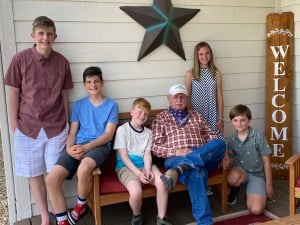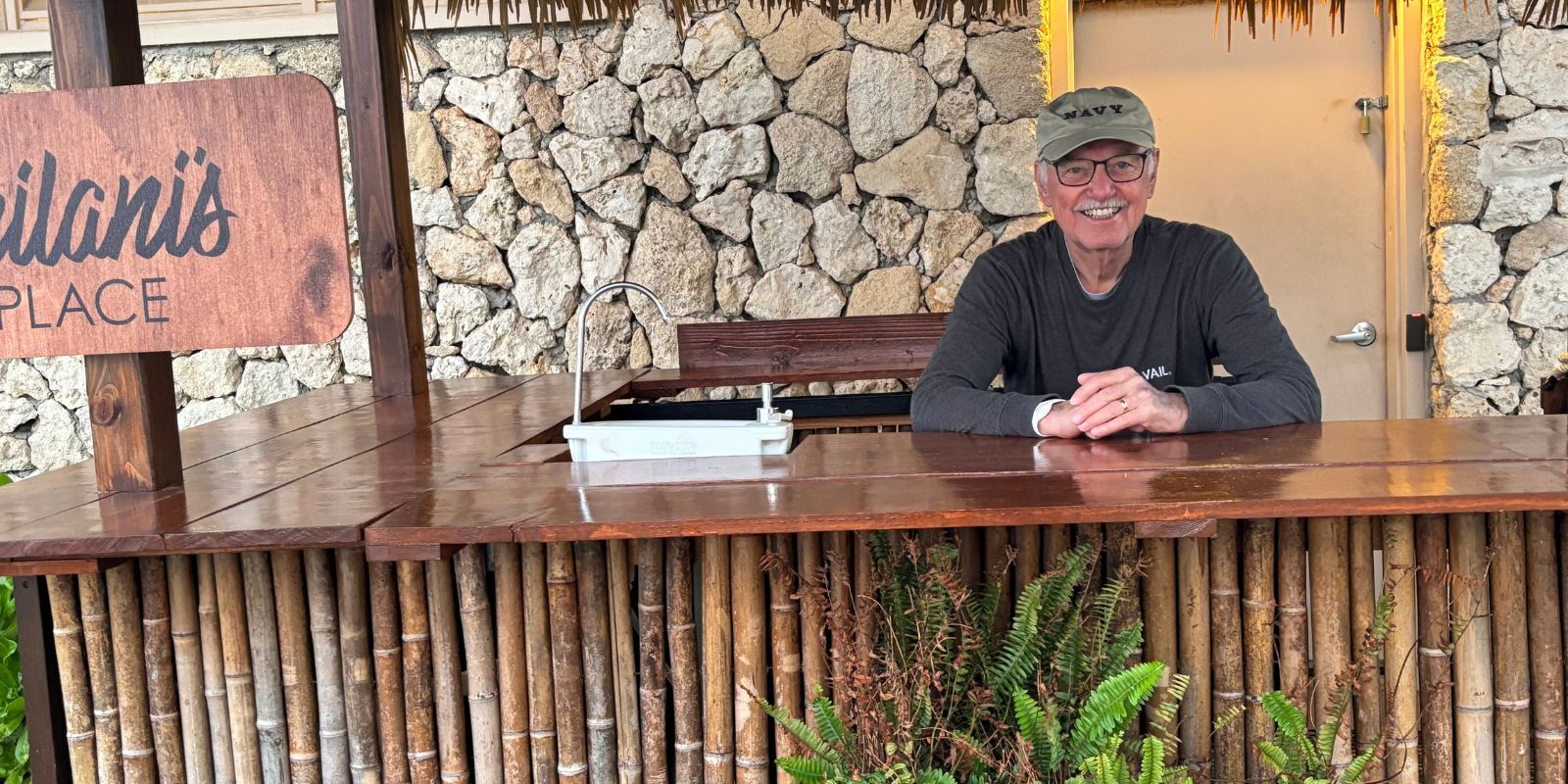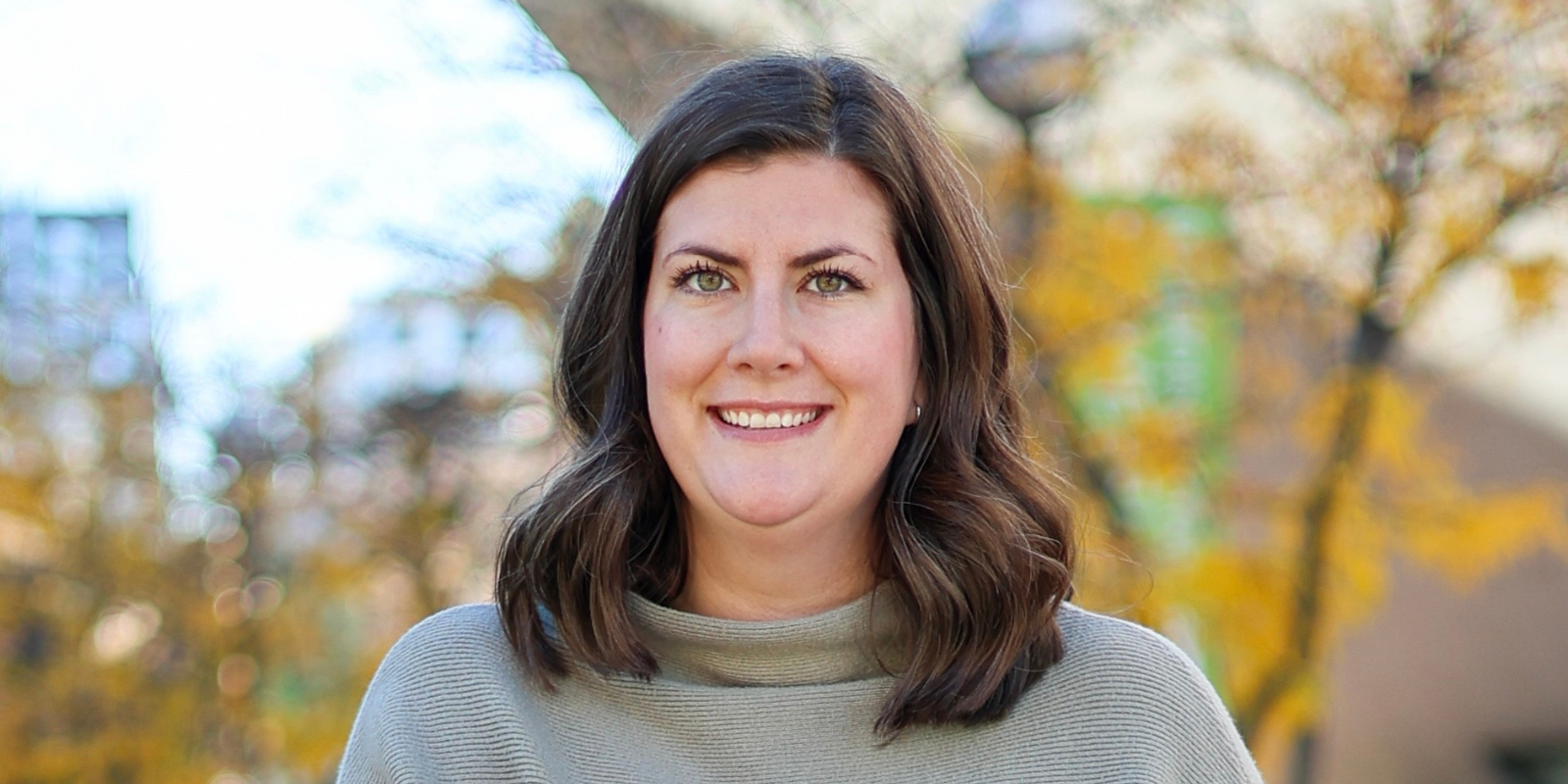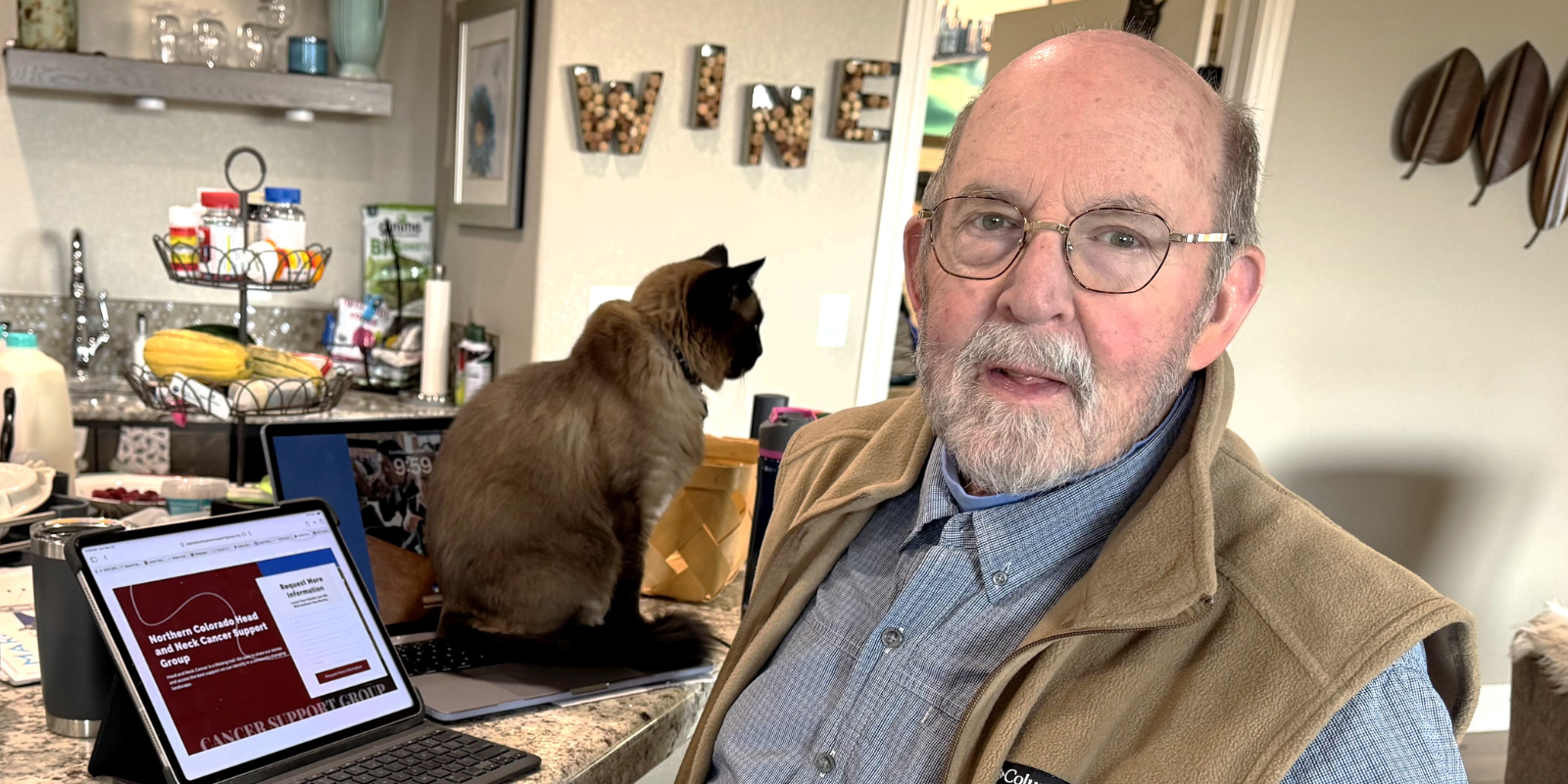“For Christmas, we took a family photo with all the grandkids,” says Sam’s wife, Janet. She went on to explain, “The kids wanted to take this photo because they thought Sam would not be here next Christmas.”
Melanoma is a dangerous type of skin cancer that is likely to grow and spread. When this happens, it is called metastatic cancer and for Sam it had spread to his lung.
After two surgeries at the UCHealth Medical Center of the Rockies in Loveland, Colorado to remove tumors, Sam’s oncologist, Dr. Douglas Kemme, knew Sam needed more than the standard treatment.
Transferring care to get on a clinical trial with CU Cancer Center
Early in 2019, Dr. Kemme referred Sam to receive treatment at the University of Colorado Anschutz Medical Campus where he met Dr. Karl Lewis. Sam learned about an investigator-initiated trial (IIT) taking place at the CU Cancer Center for patients with metastatic melanoma and he fit the qualifications.
“An IIT is a clinical trial developed specifically by researchers at the University of Colorado and only available here right now. The idea is that if an IIT is successful it could be turned into a multi-center trial testing the overall survivor outcomes,” says Dr. Martin McCarter, the trial’s principal investigator. “IIT’s really are the fundamental way that we discover new therapies and ultimately improve the way we care for patients.”
“I was apprehensive at first when I was diagnosed with cancer, but then I felt a ray of hope from the clinical trial. Dr. Kemme mentioned that the University of Colorado Cancer Center is known for the progress it’s made in skin cancer research,” says Sam.
Sam is correct. Due to Colorado’s altitude and outdoor lifestyle, the state has an especially high rate of melanoma and other skin cancers, making CU Cancer Center a hub of research and treatment. University of Colorado Cancer Center helped to test drugs that point the immune system at melanoma, and now Sam’s IIT hoped to take a next step.
“The rationale to pursue this clinical trial is that we know immunotherapy has been effective for many melanoma patients, but it doesn’t work with everybody. Sometimes the tumors suppress the immune system and prevent the immune reaction,” says Dr. McCarter. “We have been very interested in trying to overcome this immune suppression and based on our early basic and translational research supported by the University of Colorado Cancer Center, we identified a particular cell population, called myeloid derived suppressor cells, that plays a role in melanoma induced immunosuppression.”
Sam’s IIT would use two drugs: the common immunotherapy drug pembrolizumab (Keytruda), and along with this, a new drug combination adding all trans retinoic acid (ATRA), which targets the myeloid derived suppressor cells.
Tracking side effects
As an early-phase clinical trial, an important part was to explore any extra side effects of adding ATRA to the immunotherapy treatment.
“Going into this study I knew that headaches were a possible side effect,” says Sam, noting that he certainly had his share.
Sam also lost function in his adrenal glands, but Dr. McCarter shared that it was not due to ATRA but rather to a known side effect from the immunotherapy. Meanwhile, Sam’s tumors were shrinking.
“I feel very fortunate and blessed that this trial is working for me,” says Sam. “I could deal with the headaches for the extra time I am getting. I would encourage anyone to consider a clinical trial for their cancer treatment if it is available.”
Like Sam’s trial, many CU Cancer Center clinical trials are built on the backbone of the standard treatments, often adding a drug that has shown promise in laboratory and animal studies. Still, despite extensive testing before a drug is used with patients, it takes courage to be one of the first people to try a new treatment. In Sam’s case, it also offered the opportunity to be one of the first patients to benefit.
“I am very grateful for any patient that is willing to participate in a clinical trial,” says Dr. McCarter. “I like to point out to them that every single drug that is now FDA approved and available to patients went through a similar process. Without people who are willing to participate in that process, we would not be where we are today.”
Traveling for specialized care
“We are really blessed that the CU Cancer Center is not far from our home,” says Sam who lives in Longmont, Colorado. “It does not hit you until you go down to the Anschutz Campus a few times for treatment. I started noticing people with suitcases and realized that these people are coming from out of town to get their treatments. All I can think is how fortunate we are to just be able to drive for an hour.”
The CU Cancer Center is one of 51 National Cancer Institute-designated comprehensive cancer centers and one of only two in the Rocky Mountain Region. The ability to offer IITs like the one Sam is on and the basic research taking place on the Anschutz Medical Campus make CU Cancer Center a national and international leader in cancer research and care.
Sam with his grandkids in May 2020.
“We were both really scared when we found out it was metastatic melanoma because that is not a very good diagnosis and they can’t do chemo or radiation and things were looking pretty bleak. This treatment option gave us hope,” says Janet as she started to tear up.
Sam just wants to see his grandkids grow up. He has six grandchildren all between the ages of 11 and 16.
He has been able to do just that; Sam spent another Christmas with his family. Since starting Dr. McCarter’s IIT, Sam has four clear scans and continues on immunotherapy treatment.
“I am very encouraged that cancer research will continue to grow. Four years ago there would have been no hope after my diagnosis,” says Sam. “Now these clinical trials can give people hope. This trial saved my life.”




